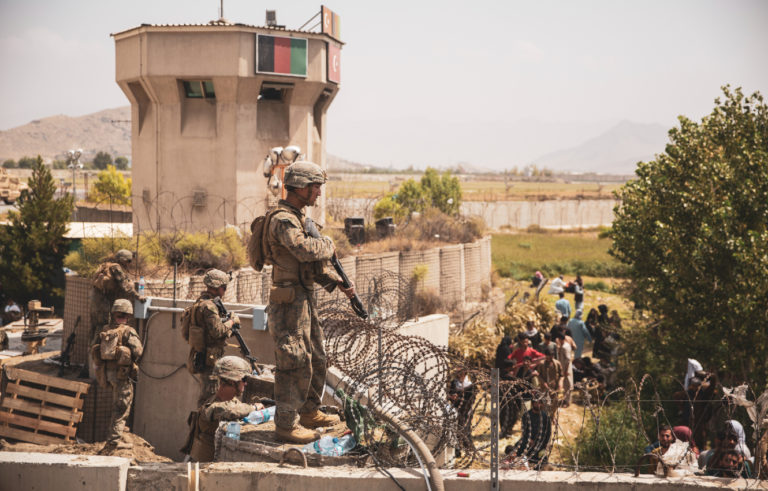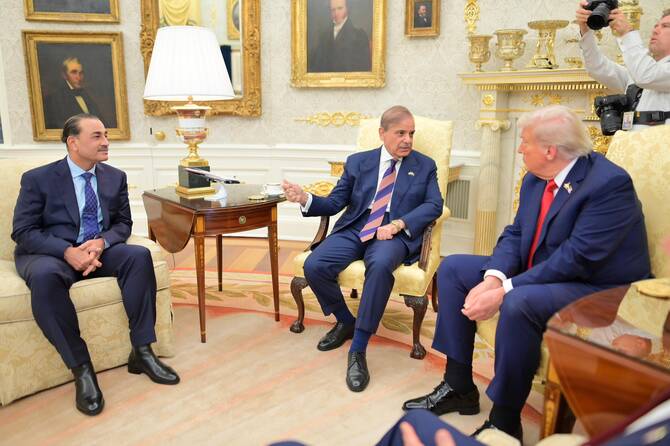NEW YORK: Pakistan, China, Iran, and Russia pressured Afghanistan to take necessary measures to counter terrorist attacks in its territory to spread peace in the region. Commitment to a peaceful Afghanistan: Foreign ministers from Iran, Russia, Pakistan, and China, at the 80th UN General Assembly meeting, renewed their commitment to supporting Afghanistan as an “independent, …
Asian Countries Pressured Afghanistan to Counter Terrorism

NEW YORK: Pakistan, China, Iran, and Russia pressured Afghanistan to take necessary measures to counter terrorist attacks in its territory to spread peace in the region.
Commitment to a peaceful Afghanistan:
Foreign ministers from Iran, Russia, Pakistan, and China, at the 80th UN General Assembly meeting, renewed their commitment to supporting Afghanistan as an “independent, united, and peaceful state, free from terrorism, war, and narcotics.” At the same time, they underlined the urgent need to prevent terrorists from using Afghan soil for operations.
This gathering was part of the quadripartite consultations that began in 2017, designed to promote regional stability and coordinate strategies to tackle terrorism, extremism, and narcotics linked to Afghanistan.
The informal group regularly meets at both ministerial and representative levels, aiming to encourage political dialogue and boost Afghanistan’s integration into the regional economy.
Concern over Terror groups:
The ministers voiced serious concern over the continued presence of dangerous groups, including ISIL, Al-Qaida, Tehreek-i-Taliban Pakistan (TTP), the East Turkestan Islamic Movement (ETIM), Jaish ul-Adl, the Balochistan Liberation Army (BLA), the Majeed Brigade, and others. These groups, they warned, are a “serious threat to regional and global security.”
The joint statement stressed that peace in Afghanistan and the fight against terrorism, extremism, and narcotics are shared interests for the entire region.
Adjustments to international sanctions:
The four states also called for changes to the 1988 UN sanctions regime, noting that adjustments are needed to reflect today’s realities. They suggested measures such as travel exemptions for some Taliban officials, which could support dialogue and engagement.
At the same time, the ministers emphasised the importance of continuing humanitarian aid to the Afghan people. They urged that this assistance must remain independent of political considerations, focusing solely on the urgent needs of Afghan citizens.
Acknowledging Afghanistan’s dire situation, the ministers called for regional economic initiatives to strengthen the country’s trade and connectivity. They urged the international community to step up emergency humanitarian aid while reaffirming their own readiness to expand economic cooperation with Afghanistan.
Backing diplomatic and political efforts:
The ministers expressed support for all diplomatic efforts aimed at achieving a long-term political settlement in Afghanistan. They endorsed the role of the United Nations. They highlighted the value of regional frameworks such as the Moscow Format, the Foreign Ministers’ Meeting of Afghanistan’s Neighbouring Countries, and the Shanghai Cooperation Organisation (SCO).
They also welcomed the joint meeting of Special Representatives from China, Iran, Pakistan, and Russia, held in Dushanbe on September 12, and encouraged the continuation of these quadrilateral consultations.









